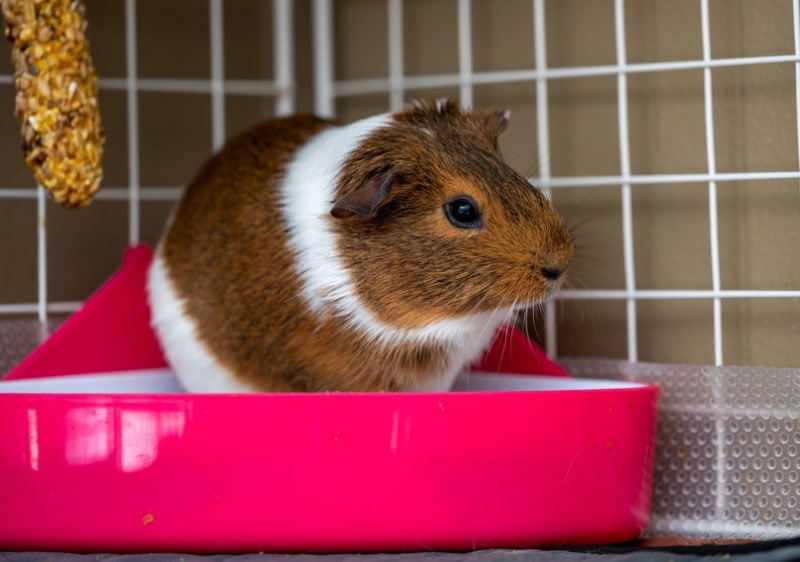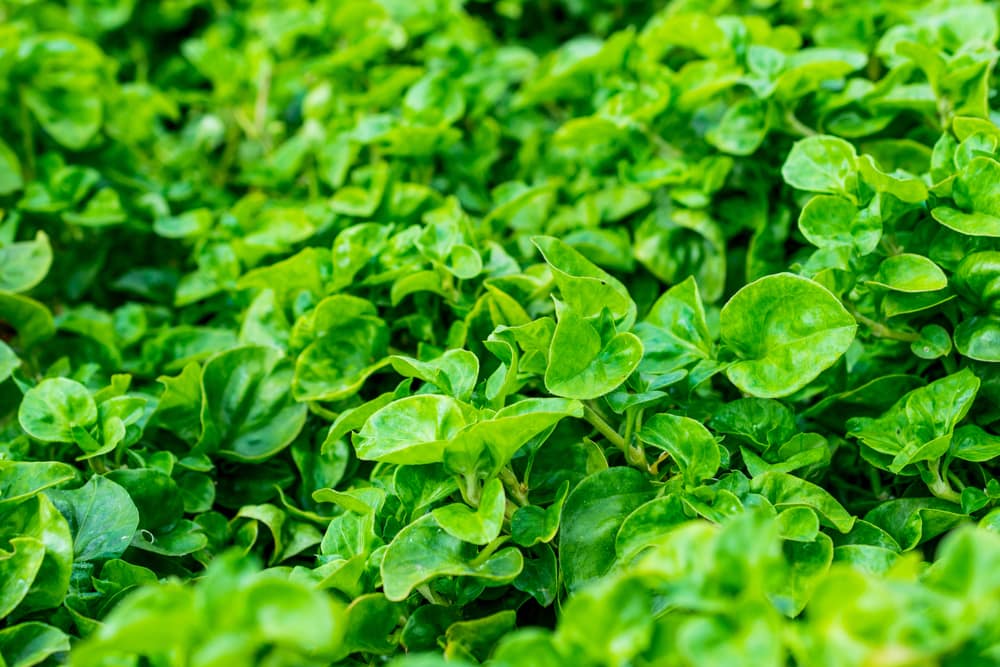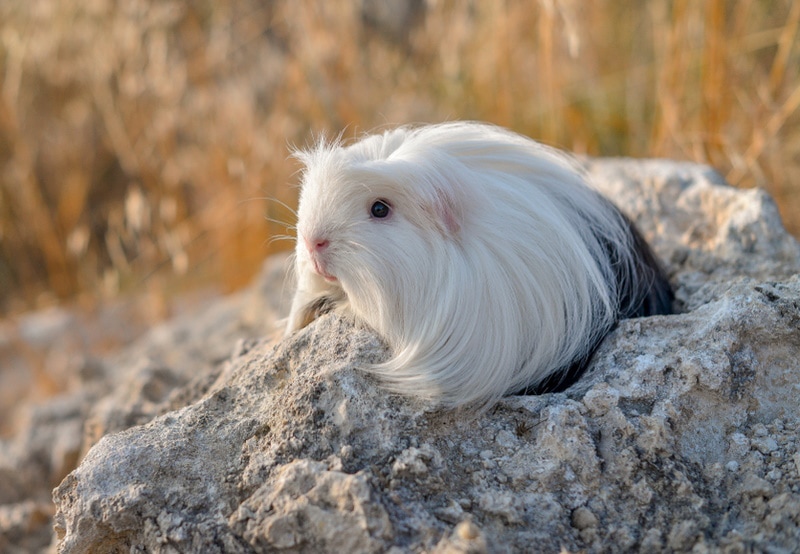Can Guinea Pigs Eat Parsley? Vet-Reviewed Nutrition Facts & FAQ

Updated on
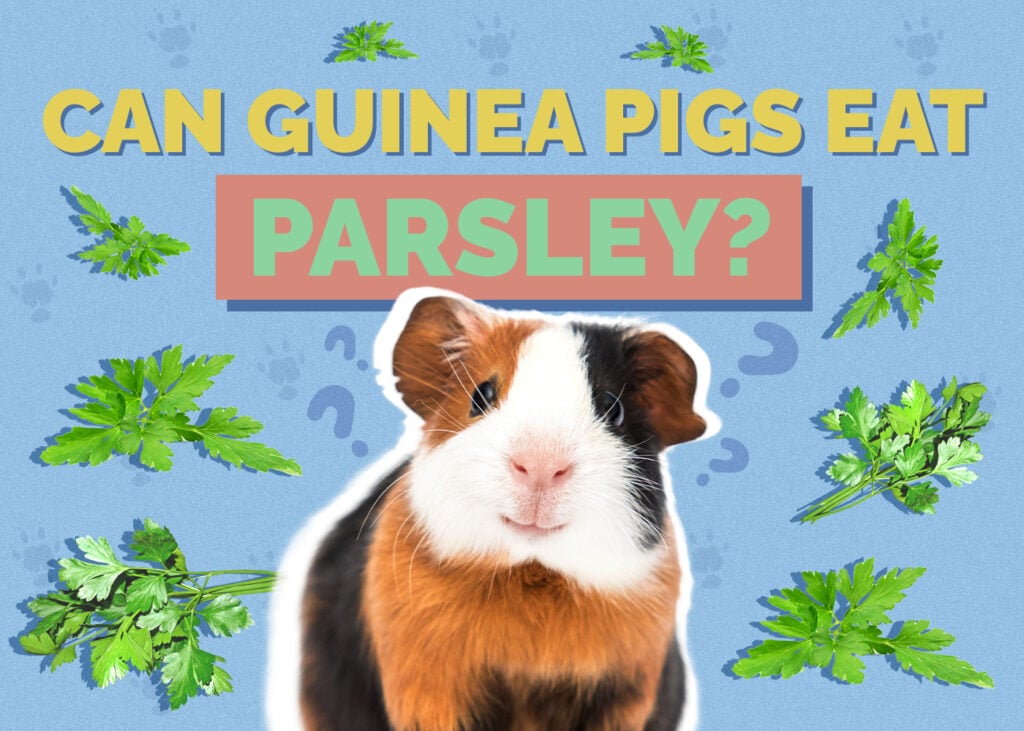
Click to Skip Ahead
Parsley is an edible herb that is very popular in cooking and easily grown at home. All varieties of edible parsley are also safe for Guinea Pigs to eat, and because of their vitamin C and calcium levels, as well as the fact that they are lower in sugar than a lot of alternatives, they are considered a beneficial herb to add to a Guinea Pig’s diet.
It should be fed as part of a varied diet, which means feeding a good variety of different herbs and greens, not just parsley, but it doesn’t take any preparation and you can even feed the stalks so none of the plant goes to waste.
About Parsley
Native to Greece and Morocco, Parsley is a flowering herb that has been used since Ancient Greek times as a flavoring and garnish in many different cuisines. It is a member of the same family as carrots and celery, and its name translates from Greek as “rock celery”. It can be eaten raw or cooked and as well as growing well outdoors in temperate climates, it is also easy to grow on the kitchen windowsill or an indoor herb garden. It can be bought relatively inexpensively from most food and produce stores.
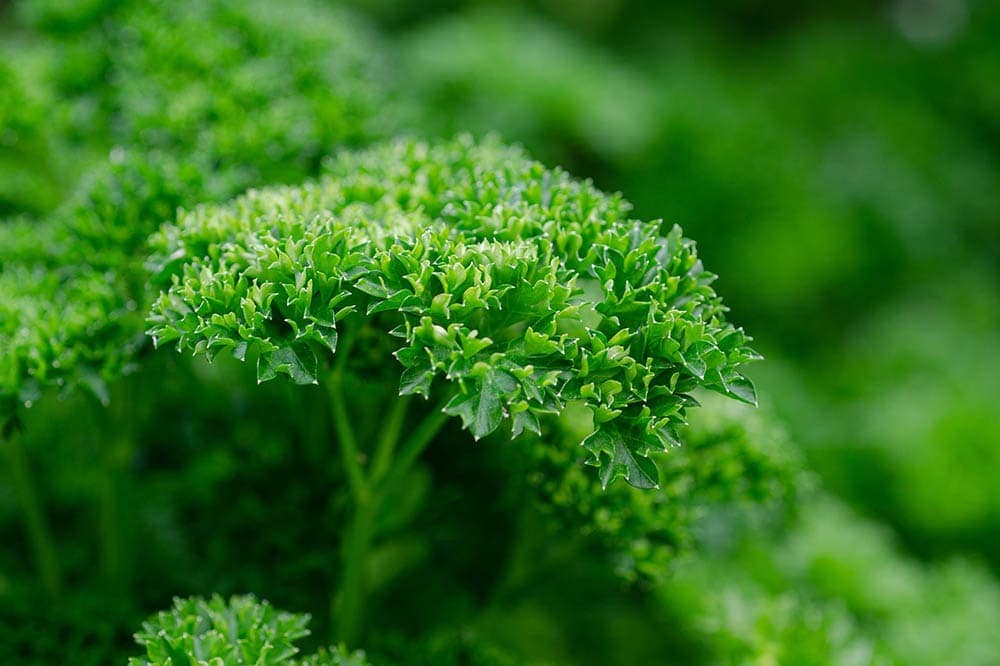
Can Guinea Pigs Eat Parsley?
A Guinea Pig diet should consist of hay, a small amount of pellets, and a selection of greens and herbs. Herbs provide phytochemicals. As well as giving plants their color, phytochemicals are believed to offer anti-inflammatory properties and aid the digestive system. They can also protect cells from some types of cancer and even slow cancer cell growth. Herbs are also high in vitamins and minerals and tend to be low in calories and sugar, which means that they offer a healthy method of meeting a Guinea Pig’s daily nutritional requirements.
Parsley Benefits
As well as containing phytochemicals, parsley is considered a beneficial herb to feed Guinea Pigs for the following reasons:
- High in Vitamin C: Guinea Pigs, like people, cannot produce vitamin C themselves, which means they need to get this essential vitamin from the food they eat. Vitamin C plays an important role in skin, joint, and gum health, and it strengthens the immune system, enabling your Guinea Pig to more efficiently stave off illness. Parsley has an especially high concentration of vitamin C that is similar to that of bell peppers, and even a few sprigs will help meet your Cavie’s daily requirements.
- High in Vitamin K: Vitamin K is another essential vitamin and one that parsley is rich in. It encourages blood clotting, so it is helpful in injury recovery. Vitamin K is found in a lot of foods that are commonly given to Guinea Pigs but it is still important to ensure that yours is getting enough.
- Contains Antioxidants: Antioxidants fight free radicals, which are the cause of cell injury. People are encouraged to eat foods high in antioxidants because they can help prevent certain cancers, heart disease, and other illnesses and conditions. Guinea Pigs enjoy the same benefits and parsley is high in antioxidants thanks to its high levels of vitamin C. Other antioxidants found in parsley are also beneficial in protecting eyesight.
- Low in Calories: Guinea Pigs are stout little animals, but they can easily put on too much weight, and once a Guinea Pig is overweight, it is more likely to develop health Feeding them foods that have high nutritional value but are low in calories and sugar is, therefore, important. Parsley is one such dietary addition.
Parsley Precautions
Parsley is a beneficial addition to a Guinea Pig’s diet, but owners need to take some precautions when feeding this herb. Although Cavies need calcium in their diet because it helps strengthen and protect bones and teeth, too much can lead to bladder stones. Parsley is not only quite high in calcium but it also contains oxalates, which are a contributing factor to kidney stones. Parsley is fine in moderation, but don’t get carried away feeding it just because your kitchen herb garden is flourishing.
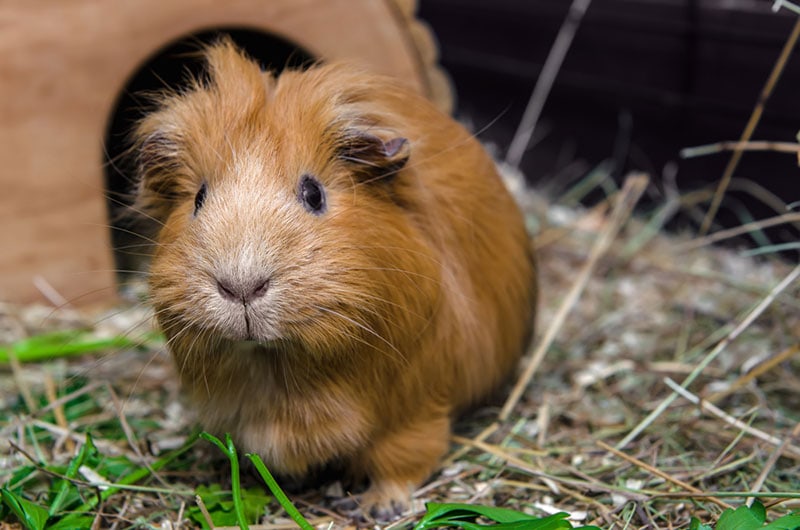
How Much to Feed & How Often?
Moderation is key when feeding parsley, as it is when feeding most foods. Your Guinea Pig will benefit from a varied diet, anyway, because it helps ensure that they get all the vitamins, minerals, and other essential ingredients they require. It also prevents dietary boredom which can cause your Guinea Pig to eat less. And because of the levels of calcium and oxalates in parsley, moderation can help avoid kidney and bladder stones.
Feed parsley once or twice a week and ensure that there is a gap of a few days between parsley sessions. You can feed between 5 and 10 sprigs at a time. If the parsley is organically grown, you don’t need to do anything other than pick it and feed it. Otherwise, ensure any chemicals and pesticides are cleaned off with thorough washing. The whole of the plant is edible, so there won’t be any waste.
The 5 Other Herbs & Greens to Feed Your Guinea Pig
The majority of your Guinea Pig’s diet should consist of grass and hay, with some commercial Guinea Pig food pellets that help provide vitamin C. As well as these, you should also feed a variety of vegetables and herbs, ideally offering a variety through the course of the week. Some of the healthiest and most common options include:
1. Bell Peppers
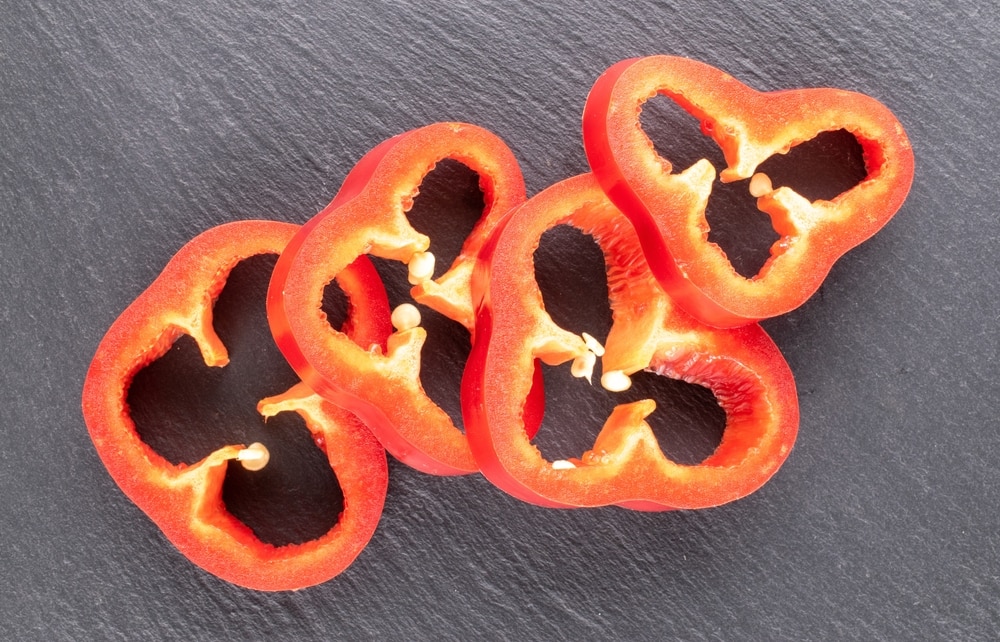
Bell peppers are high in vitamin C while being low in calcium and containing relatively few calories. You can feed any color pepper but do make sure you’re feeding sweet peppers. Some owners feed bell peppers daily, combined with other vegetables.
2. Spring Greens
Spring greens also contain high levels of vitamin C but they do also have a high content of calcium, which means that they should be fed in moderation and not every day. You also need to be careful when combining spring greens with other foods that are high in calcium, like parsley.
3. Carrot Tops

You can feed carrots to your Guinea Pig. They are high in fiber, although the hay and grass elements of your Cavie’s diet should be their primary source of fiber. Carrots are also high in vitamin C and provide hydration because they are high in water. However, carrots are quite high in sugar. Carrot tops have less sugar.
4. Basil
Basil is another herb that is commonly used in cooking and can be grown at home. It does contain some fiber, although mint and thyme have higher concentrations than basil. It has some vitamin C, albeit not as much as parsley.
5. Coriander

Coriander, or cilantro, is good for hydration and it has good levels of vitamin A, which is especially beneficial for the promotion of healthy eyesight. However, this is another herb that is high in calcium so take care when feeding it with other calcium-rich foods.
Conclusion
Guinea Pigs need a diet that consists primarily of hay and grass, with a tablespoon of commercial food pellets. They also need a handful of green vegetables and herbs every day because these will help to meet vitamin and mineral requirements. Parsley is considered a beneficial herb to feed Guinea Pigs because it is high in vitamin C and antioxidants. However, it is also quite high in calcium so it should only be fed once or twice a week and in moderation. You will also need to take care when feeding this with other high-calcium ingredients.
Featured Image Credit: JumpStory


